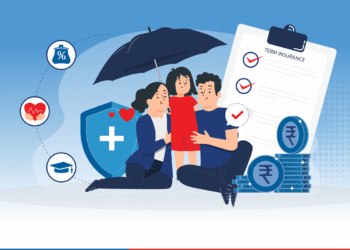Personal loans are financial products that help you achieve various financial goals, from debt consolidating to funding your dream vacation. However, one of the most pivotal factors that can impact your borrowing experience is the interest rate applied to the loan. This rate signifies the additional amount you will be paying on top of the principal sum. Therefore it is of utmost importance to comprehend the various factors that influence personal loan interest rates.
This blog is a detailed guide for you to understand the crucial factors that impact your personal loan interest rates. Armed with this knowledge, you can make informed decisions tailored to your financial requirements potentially resulting in cost savings during the borrowing process.
Factors Influencing Personal Loan Interest Rates
Personal loan interest rates can significantly impact your budget and borrowing capacity for financial assistance. Here are some factors that you can consider before applying for a personal loan:
1. Credit Score
Your credit score is a direct reflection of your creditworthiness and serves as a measure of the risk associated with lending you money. It signifies the risk of lending money to you. A high credit score suggests a strong credit history and responsible financial behavior, which makes lenders more comfortable with the prospect of lending to you. Consequently, individuals with higher credit scores typically qualify for personal loans at lower interest rates.
Conversely, if your credit score is low due to missed payments, high credit card balances, or other negative factors, lenders may offer you a personal loan at a higher interest rate. Before applying for a personal loan, it is advisable to check your credit score and take steps to improve it if necessary.
2. Loan Amount and Term
The amount you borrow and the duration of the loan term can also affect your personal loan interest rates. Lenders may consider larger loans as riskier, so they offset that risk with higher interest charges.
Furthermore, the loan term, which specifies, the duration over which you will repay the loan amount, can have an impact on the interest rate. Lenders may charge higher personal loan interest rate on longer loan tenures while lower on shorter tenures or vice-versa. The specific terms may vary depending on the lender you choose.
When applying for a personal loan, it is crucial to assess your financial needs and repayment capacity in order to determine the most suitable loan amount and term.
3. Income and Employment Stability
Lenders want to ensure that you are independent with a source of income and a secure job when providing personal loans. A consistent income source and employment history significantly increase the likelihood of securing a personal loan at a lower interest rates.
Demonstrating a steady income and a history of stable employment signifies to lenders that you are a dependable borrower. Conversely, irregular income or frequent job changes can result in higher personal loan interest rates.
4. Lender Policies and Competition
The lender you select plays a significant role in determining your personal loan interest rate for your personal loan. Different financial institutions and online lenders have varying policies and risk assessment criteria. Some lenders specialize in serving catering to borrowers with excellent credit scores, offering lower interest rates as an incentive. On the other hand, more lenient lenders may charge higher interest rates to compensate for the increased risk associated with their borrowers.
To secure the most favorable interest rate, it is essential to explore multiple lenders. Online tools and comparison websites can make this process more convenient, enabling you to review multiple loan options and select the one that aligns best with your financial situation.
5. Market Interest Rates
The overall economic climate and market interest rates also influence on personal loan interest rates. When central banks adjust their benchmark interest rates, it has a ripple effect on the rates offered by lenders. In times of economic growth, central banks may increase interest rates to manage inflation, which can lead to higher personal loan rates. Conversely, during economic downturns, central banks may lower interest rates to stimulate borrowing and spending, resulting in more attractive personal loan rates.
Understanding the broader economic context can provide valuable insights, helping you determine the most opportune moments to apply for a personal loan.
6. Secured vs. Unsecured Loans
Personal loans come in both secured and unsecured forms. Secured loans require collateral, such as a car or property, which the lender can claim in case of default. Unsecured loans, on the other hand, don’t need collateral but may come with higher interest rates since they carry more risk for the lender.
If you are open to providing collateral, you can secure a lower personal loan interest rate. However, it is imperative to recognize the potential risk associated with the possibility of losing your collateral should you encounter difficulties in repaying the personal loan.
Empowering Informed Decision-Making for Personal Loans
Personal loan interest rates are not set in stone and can vary significantly depending on your financial circumstances and lender choices. By understanding the factors that impact these rates, you can take proactive steps to secure a personal loan with favorable terms. It further helps you save money on interest payments.
Before reaching to any conclusions, it is essential to conduct comprehensive research, enhance your credit score, and conduct a meticulous evaluation of your financial situation. Armed with the right knowledge and strategy, you can make the most of this versatile financial tool. To start with, you can resort to lenders like Tata Capital. They provide you with nitty-gritty details to secure the best personal loan interest rate.
Embark on the path to securing loans with competitive interest rates by initiating your exploration today!























